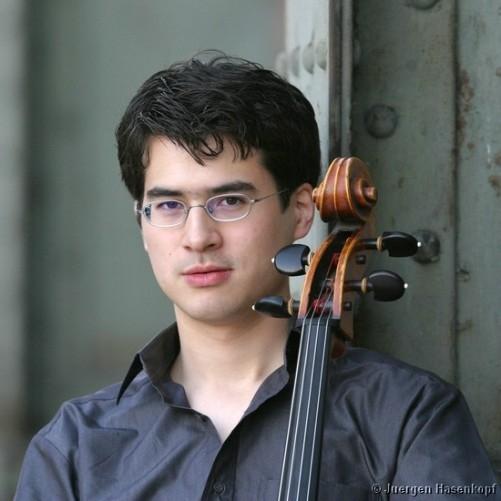For many of us, this was bound to be an emotional evening. Noëlle Mann, doyenne of all things Prokofievian on the editorial, archival, teaching and performing fronts, died peacefully at home last Friday, and it was to her that Vladimir Jurowski dedicated a typically bold programme of Prokofiev's late epic for cello and orchestra, the Symphony-Concerto, and a big but rather less focused symphony by his closest composer-friend Nikolay Myaskovsky. Perhaps it's presumptuous to speak for the departed; but I could hear Noëlle responding vitally to her master's voice, applauding Jurowski for championing the lesser-known figure but sternly proclaiming the verdict shared by most of us: that while Prokofiev was touched by the divine spirit, poor, diligent Myaskovsky clearly wasn't.
It couldn't have received a more focused or passionate interpretation. Jurowski turned the corners of the repetitive chromatic welters with immaculate emphasis, etched the brief woodwind idylls and celesta-led dream-images of the Dies Irae with plenty of atmosphere and dashed through the finale's opening potpourri of French revolutionary songs as if it were great music rather than a Korngoldian film score.
Myaskovsky apparently had in mind here the final charge and death of a revolutionary hero (thanks to David Fanning's excellent notes for clarification - and thank you, LPO, for restoring sane expertise to your programmes). The quiet close, with a chorus giving the soul a heavenly send-off while the body remains below, is interesting but, like the rest of the symphony, left many of us unmoved. The ideas simply aren't strong or original enough, the orchestration unimaginatively applied compared to Prokofiev's work at the same time. We know that the depressive Myaskovsky was a sincere and honourable human being, but still the sincerity didn't come across in this laboured, lugubrious score. Jurowski will give us a further chance to compare with a near-contemporary masterpiece by Myaskovsky's junior colleague when he conducts Prokofiev's Third Symphony at the Proms.
Ideally, last night's programme order would have been reversed, with the later Prokofiev work after rather than before the interval, though I don't know whether the bored or the puzzled in a surprisingly young audience would have come back. At any rate Prokofiev's curious hybrid, which is truly half a very embattled symphony, half a concerto with a hair-raisingly difficult role influenced by collaoration with the young Rostropovich, seems to go further into the personal realm than the earlier concerto from which it derives (thankfully the long-misleading title "Sinfonia concertante" is being consigned to the dustbin of history) . Prokofiev was seriously ill and harrowed by the Soviet regime when he completed the Symphony-Concerto just over a year before his death in 1953. It's tempting to read into it a conflict between demonic and personal forces, but there are certain quotations to reinforce that view - like the one from Tchaikovsky's Francesca da Rimini in the whirlwind scherzo which surely evokes the Dante quote "there is no greater sorrow than to recall times of happiness in misery".
It was perhaps helpful for those of us ready to blub at the slightest hint of a soulful tune that cultured young German-Japanese cellist Danjulo Ishizaka kept it all focused, unsentimental but still deeply expressive. An extra rehearsal might have helped, but what set the performance soaring was Ishizaka's apparent breaking of a string just before the denouement of the harrowing second movement. He went off, Jurowski took a quick decision on where to go back to, and, after quite a break, up the intensity levels went. They stayed up in the sometimes playful variations of the finale which finally dissolve in dreams and end in escape from the demons.
Co-ordination between soloist and orchestra was strong. Ishizaka's channelled sound always rose above ensembles - though Prokofiev's scoring is usually very careful - and he duetted chillingly with each of Prokofiev's idiosyncratic low trumpet parts (Nicholas Betts and Anne McAneny, superlative). As the cellist signed off in perilous but brilliantly negotiated highest register, I was reminded of the way Ishizaka's senior colleague Sasha Ivashkin described the final flight in a demonstration lecture as the soul squeezing through the narrow gates of paradise when hell is all around. That's another insight - from the 2003 Manchester Prokofiev events - we'd never have had without Noëlle's tireless organisational skills.
- Read a tribute to Noëlle Mann on David Nice's blog
- Read theartsdesk's recommendations for the Proms, including the LPO/Jurowski programme
- Catch Jurowski's next LPO concert at the Southbank on Saturday 1 May













Add comment